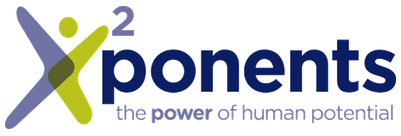Jun 23, 2020 10:42:04 AM
When we change the quality of our conversations it is possible to transform our relationships and expand our world. But too often, we first look for where we disagree and polarize around those differences. Our conversations are then filled with resistance and defensiveness rather than elevated thinking and creativity. The time has come to seek alignment in a polarized world.
In my work with teams, creating a safe place enhances dialogue and awareness of how the organizational system operates. Personal development work progresses when individuals see themselves as they are, and contrast this with how they want to be, without their ego being overly threatened. While the pain associated with maintaining the status quo, must outweigh the effort required to change, the ego needs to be challenged but within one’s “safe-zone.” For individuals, core values can be the fuel that energizes and holds the ego in check, and the same is true for teams. Aligning work teams on shared values and goals is the fuel that elevates the bigger picture over individual ego needs. Alignment on roles and meta-communication (agreeing how we will communicate) goes a long way toward intentionally building a team’s identity and culture.
Alignment with other(s) is complex, because it demands one look through the lens of “we” not just “me.” If we go back to basic communication, it looks like this:

When the Sender initiates communication, it is colored by:
- Innate personality, talent, competency
- one’s own experience and view of the world
- the communication channel (email, social media, in-person)
- noise and distraction within the system
Even with the best intentions, the message is distorted by one’s encoding and then again by the others interpretation or decoding. If one is to effectively communicate her unique perspective, then the sender must transmit through complex layers of reality that are different for everyone. And in turn the Receiver must hear the Sender’s message, not just in words but also by what is left unsaid and unknown. This level of communication, or dialogue, requires trust, care, connection, and commitment to the relationship(s). Pursuit of a deeper dialogue takes willingness, openness, practice, and risk-taking.
Using a monologue or focusing only on one’s own point of view is efficient and appropriate under certain circumstances. It is often used to attract and inspire those who share values, ideals, hopes, and dreams. This is a smart tactic to rally support, identify allies, and develop a tribe. By itself, it rarely changes the system or another, but it is a key element of empowering oneself. Finding voice is part of one’s personal growth and development and requires that we look inside. Leading change is part of the leadership journey and calls us to look outside and inside ourselves. Monologue and Dialogue have an important role to play, and to maximize impact requires attention and intention. Monologue from a need to be right perspective, feeds one’s ego. Dialogue that ensures all voices are heard, feeds our collective soul.
A willingness to be changed by a conversation is at the heart of coactivity and collaboration. Below are five tips for finding alignment with your business partner(s):
- Develop Authentic Trust. Create relationship contracts with others to avoid assumptions about how best to communicate. Ask about past successful work relationships to gain a deeper understanding of how others want to be treated. Speak-up for how you want to be treated.
- Encourage Deep Democracy. Arnie Mindell describes Deep Democracy (n.d.) as, “a natural process that occurs in all community building processes, but often goes unnoticed or un-used.” Conventional Democracy strives to include all individuals in the political process but Deep Democracy fosters inclusiveness “that makes space for all people with various and competing views, tensions, feelings, and styles of communication – in a way that supports awareness of relative rank, power, and privilege, and the potential of these forces to marginalize other views, individuals, and groups.” The concept that, nobody gets to be wrong, and everyone is right but only partially, supports a no-judgement zone.
- Value Differences. As an old boss once told me, “if we are alike in our thinking then one of us is redundant.” Respect the inherent expansive opportunity that differences offer relationships and teams.
- Ask first and listen with genuine interest. Show others you are interested in what they think by practicing curiosity. Avoid the trap of pretending to listen while building an argument in your head. Say, “I see it differently, but I want to see it through your eyes…tell me more.” They may not be able to offer the same curiosity in return, so be curious about that too.
- Search for areas of alignment. When we look first for connection and humanness, we build a positive base to have the hard conversation. Get on the same side of the problem or opportunity before addressing sensitive topics. Offer, “We agree on…” And then, “are you interested in hearing another perspective?”
Xponents online program, Creating Collaborative Partnerships develops the mindset and skills needed to change the quality of the conversation. Check-out the details here, or register for a FREE webinar to learn more.
Deep Democracy Institute. (n.d.). Deep democracy explained. Retrieved June 20, 2020, from https://www.deepdemocracyinstitute.org/deep-democracy-explained.html













4 Responses